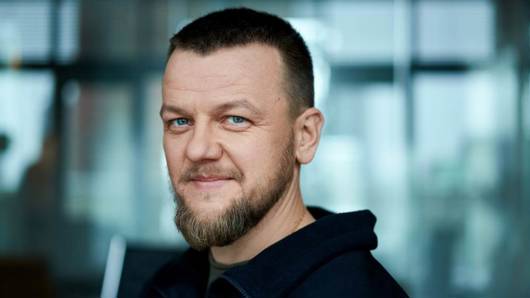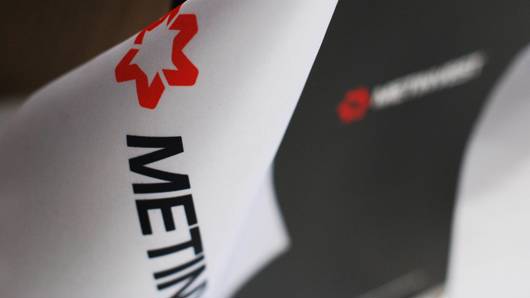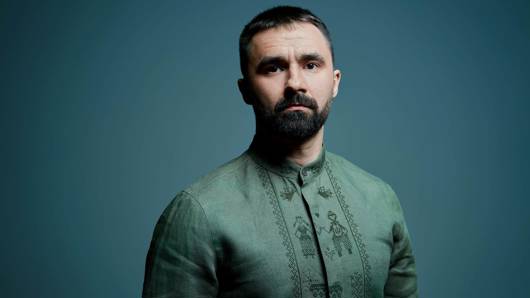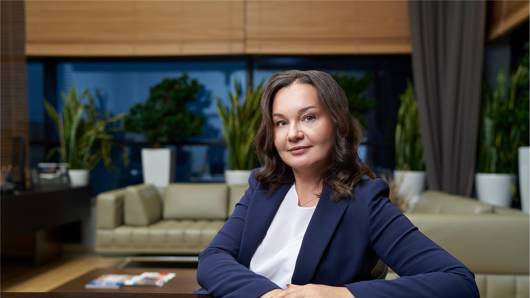At the Forbes “Made in Ukraine” Exporters Summit, held in Kyiv on 21 March, Metinvest Group CEO Yuriy Ryzhenkov discussed the main prerequisites for the growth of export-oriented companies in Ukraine during the war. Among these, he named the expansion of logistical opportunities, currency liberalisation and transparent rules for employee draft deferral.
The summit gathered 40 speakers from various business sectors: metals and mining, agriculture, banking, logistics, consulting, investment, furniture manufacturing and retail. The Ukrainian government was represented by Deputy Prime Minister for European and Euro-Atlantic Integration Olha Stefanishyna, Deputy Minister of Economy Taras Kachka and Deputy Minister for Communities, Territories and Infrastructure Development Yurii Vaskov.
Metinvest’s CEO thanked all those involved in the opening of the Ukrainian sea corridor.
Yuriy Ryzhenkov emphasised: “When we opened this temporary corridor, Metinvest’s products were carried by the first ships that followed those laden with agricultural goods. I am grateful to the defence forces, intelligence services and our partners who made this possible. This now opens new horizons for both the Group and the country as a whole, in 2024 and the coming years. However, this is just the beginning. We need to work on logistics and expanding bottlenecks. This includes Ukrainian Railways, damaged bridges and port operations. The capacity of ports is not enough, and a lot can be done there.”
He also shared Metinvest’s development strategy, which could become the backbone for the country’s post-war reconstruction.
Metinvest’s CEO said: “Although we are building a global company, our roots are Ukrainian. In our strategic steps, we always look at the foundation we have in place. All over the world, people are talking about green and digital metallurgy, which requires high-grade raw materials or semi-finished products. This is something Ukraine can do that will give an impetus to the development of the country after the war ends. We plan our future investments with this in mind. They should all be linked to the foundation that we have in Ukraine.”
According to Yuriy Ryzhenkov, Ukrainian businesses now need currency liberalisation to improve the investment climate and continue investing in Ukraine. He added: “If we do not introduce ways to achieve a return on investments, Ukraine will not be able to attract them.”
In addition, the current employee mobilisation regulations do not allow the Group, one of the largest donors to the Ukrainian defence forces, to ramp up production.
Yuriy Ryzhenkov explained: “We are a transparent company. All our employees are registered with military enlistment offices and have undergone military medical examinations. We are the largest donor, and this limits our ability to ramp up production, which could support the economy. That is why we need more transparent draft deferral regulations from the government, which would stimulate business growth and not just an outflow of personnel to the defence forces.”
Meanwhile, Oleksandr Vodoviz, head of the Chief Executive Officer’s Office of Metinvest Group, who participated in the “Export and Human Capital” panel, noted that the most significant problem facing the Group is the lack of personnel. Around 8,000 of the Group’s employees, every sixth one, are currently in the army, while more than 9,000 people have served in the armed forces.
Oleksandr Vodoviz said: “Tragically, around 500 of our employees have been killed, while around 500 more have received injuries of varying degrees of severity. Although roughly 1,000 people have returned, less than 50% of people are returning to the production line. We are short of people to run the blast furnaces and produce additional ore. We cannot even reach 50-60% of the pre-war capacities at some enterprises.”
He suggested an option that would help to solve the issue of worker’s draft deferrals: “We would like the directors of enterprises deemed critical to have the right to defer, say, 10% of personnel from the draft independently. Instead of going through these ten circles of hell through the Ministry of Economy, the General Staff and 25 other institutions that coordinate all this. Then, each enterprise director could also determine who are the critical personnel.”
The head of the Chief Executive Officer’s Office of Metinvest also said that the Group has programmes to attract more women to historically male professions. Women are already working as underground plant operators at mines.
He said: “Although we are training women, this is challenging because the number of men who have gone to the front far exceeds the number of women we can train. The issue is the time needed for the training, which can take as long as several years.”
Oleksandr Vodoviz added that Metinvest is implementing programmes for veterans aimed at retraining, as well as providing legal, psychological and physical assistance to former military personnel. In addition, the Group offers education at the Metinvest Polytechnic university to demobilised employees. Metinvest also pays for medical treatment for all seriously injured employees, and there is a prosthetics programme for those who have lost limbs in the war.










